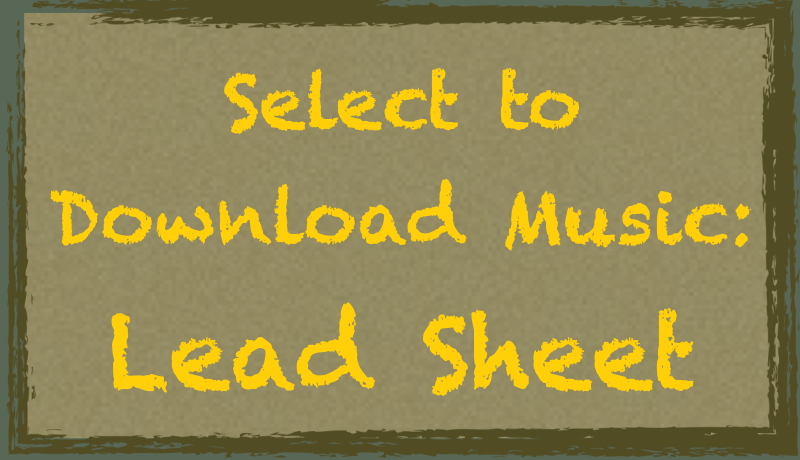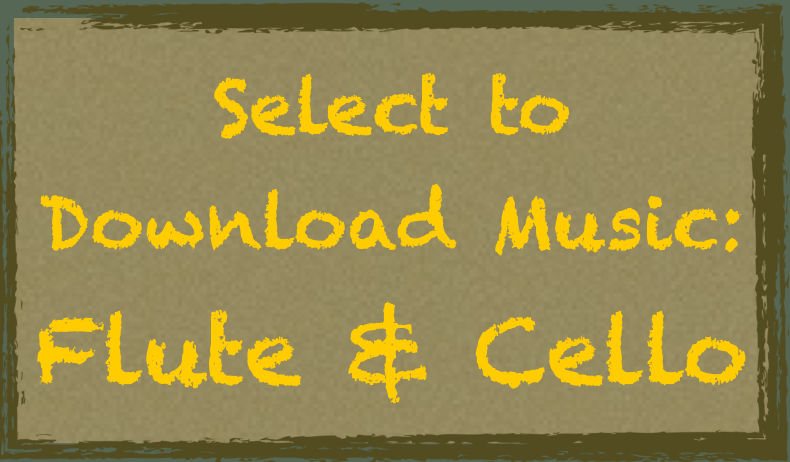.
What a Fool I've Been
"Who knows when we start out how these days will unfold?"
Scratching my head and I’m wondering way
Looking out over the blue-blank sky
Wondering how the days slipped by
What a fool I’ve been
It ain’t life and it ain’t genetic
Waxing in my shell poetic
Frankly, it’s just plain pathetic
What a fool I’ve been
Who knows where these paths would roll in these crazy days
And who knows where I’d be if I changed my crazy ways
Maybe I’d be somewhere else or maybe just the same
Maybe I’d be here anyway
No matter how I came
Flirting, fluting, flaying, flying
Dizzy, desperate, death-defying
I’m afraid that there’s no denying
What a fool I’ve been
Lyrics, music, and related creative content Copyright © 2023 by Rick Thorne
All Rights Reserved
Options for Buying This Song (Not Ready Yet!)
Placeholder for
eGrat link
Next
Song...
.
Video will go here



Rick Thorne: picked strings, percissive noises,
and continuing vocal abuse
Ian Smith: flute
Yann M: cello
Creative advisor: Nicole Lamm
Musician's and Producer's Notes
.
The "What a Fool I've Been" production takes its developmental cues from the lyrics. Much as the song springs from a lyrical exploration of the resolution of the dichotomy of seeing yourself from multiple perspectives, the arrangement is the union of multiple melodic inventions, each with its own story to tell. Each of these stories has its own identity, but they're dependent on each other for so much. Unlike much of my music, which is typically chord-driven rhythm section overdrive with a lyrical melody, "What a Fool I've Been" is driven by melodies that force the rhythm section to submit to their combined whims.
.
It's seemingly standard fare in the first verse; guitar, drum, and bass accompany the melody. Even here, though, the rhythm section is in power assist mode rather than doing the heavy lifting. The only contribution from the kit is a bass drum with a rhythm that repeats for the whole song, reducing the percussion to a ceaseless heartbeat. I love playing bass and moving around the fretboard, and while this track is no different, it's done with more humble subtlty. The acoustic guitar? Typical Rick Thorne full chords, but strummed with a delicate tenderness that doesn't match my typical fretboard-splintering whammy chords.
.
In verse four, the cello joins the discussion and makes its own statement with a gentle counterpoint against the vocal melody. It honestly seems to be saying "yeah, but..." to everything I sing. Funny: that comes right when the song starts being more confessional than introspective. With this second melody offering a different interpretation of the verse, one might recognize a second face showing in the mirror. The lyrics really accentuate the foolish and reckless squandering of a life, but sweetness of the cello melody soothes the confessioner at the moment of his most shocking revelations.
.
As the confessioner takes a little break, the flute comes in and speaks on his behalf, defending his honor as a character witness. The duet between the flute and cello aren't engaged in an argument over the confessioner's guilt; they're both talking to the exhausted confessioner, encouraging him to come back and add to the tale. They succeed: he returns, joined by an arpegiating harpsichord that brings the confessioner back to the witness stand. In that moment, he briefly ponders his insignificance then trumpets his gratitude for having had the owner of the other face in the mirror hear his story. The flute and cello surrender their swirling melodic counterpoint dance and join the harpsichord in helping the confessioner finish the story. Once he's proclaimed his gratitude, they return to their contradance, no longer swirling in encouragement but in delight at the confessioner's newfound virtues. They continue in this manner until the song ends, bouying the confessioner's spirit and keeping him afloat to offer his final testimony, which becomes now a plea for partnership.
.
I wanted the "What a Fool I've Been" arrangement to carry a fuguesque counterpoint through the whole song. My musical friends here, Yann and Ian, are classically trained European professionals who really do bring both an authentic 18th century Baroque and a thoroughly modern emotional sensitivity to their parts. What a pleasure it was working with them - they produced their parts for me in very little time and both followed my directions perfectly and brought their own spirit to the production. I look forward to working with both of them again in future projects. They're available on AirGigs (Yann M and Ian Smith) and I recommend them very highly.
Push me, pull me, grab me, shove me
Put your pumpkin dog above me
But I’m convinced that you’ll always love me
What a fool I’ve been
Who knows when we start out how these days will unfold
And who recalls each footfall of his history untold
Maybe I’d be somewhere else and doing something new
But maybe if I did
Then I’d never have met you
Let me resurrect your dreams forgotten
And your passions unbegotten
Let me spoil you stinkin’ rotten
What a fool I’ve been
Scratching my head as I watch a cloud
Waking up, I think out loud
I ain’t so bad and I ain’t so proud
What a fool I’ve been
And I can do without land and money
I’m over paid with your sweet love honey
Lots of gold in a life so sunny
What a fool I’ve been
"What a Fool I've Been" was performed by
Rick Thorne and Relatively Few Friends
All creative content created, developed, produced,
and futzed with obsessively by Rick Thorne
.
Video will go here
Songwriter's Notes
.
"What a Fool I've Been" pulls the "Walk With Me" collection into a different direction. It's certainly a softer touch and a uniquely erudite arrangement, and the lyrics are more personal. That doesn't mean it doesn't fit in with the rest of the collection. In fact, it fills a void the other songs really can't fill: it pulls back from the 21st century and harkens to an older era. It also offers a little more intimacy.
.
And in this collection, it's the right time for it. Certainly when I wrote the song in my lifeline, it was the right time for it.
.
Now - I do want to offer some songwriter's thoughts on "What a Fool I've Been", but this is one of those "where to begin, and how much to say" songs. If you read the lyrics and listened to the song, you might imagine that "What a Fool I've Been" is a deeply personal song with deeply personal origins and meanings. You'd certainly be right about that, and since I'm not one to spill intimate details about private encounters in public places, I won't go into in specifics. However, I do want to talk about what I felt that inspired the creation and development of this song.
.
The song opens with a bit of a revelation, in the form of introspection. The writer is grasping for meaning to a life that feels like it's slipped away. There seems to be lamentation and regret in the first three verses, and in the fourth verse the writer seems to be adding lamentation for his recklessness to everything else. And in verse five, there's even a touch of masocism added to the confessional. But wait: there's a person now. And the lamentation seems to turn to hope. And where does the lamenting voice looking for meaning find that hope? He finds in the love of another person.
.
Yes - the mirror of life can be an terrible and cruel thing. Mirrors are merciless and unforgiving. They don't hide the imperfections, external and internal. They don't even try to. And they force us to look and admit who we are and where we've been. But somehow, when you're suddenly sharing the mirror with different person's face - especially one that offers a compassionate and tender smile - it can make you return to the moment and count your blessings.
.
So that's the core of "What a Fool I've Been". It's a look at the look inside, and it offers that look from two perspectives. One of those is a lonely look, where you peer inside and feel the need to answer for yourself. The other look is a shared look, where you look inside and see yourself with a compassionate person carrying your heart for you. And when you admit to yourself that all you did was live your live in the short time the cosmos granted it, you might just realize too that your misgivings and self-immolation was for no real purpose. You might even discover gratitude. Gee - where was that all those years?
.
I wanted "What a Fool I've Been" to be as tender and playful as that moment in my life where I realized life is too short to be angry and maybe - just maybe - you can learn kindness to yourself and that giving back is riskier and goofier than your past self-destruction was, but it has much richer rewards. The song's chord progression is simple and easy to digest, even in the bridges where it strays far from simple diatonics and the occasional flat seven chord. The I've changed the arrangement a few times, but the sweet duet of the airy treble flute and the moaning cello were always part of it. The percussion is nothing but a bass drum. I've loved the sound of harpsichord my whole life, and this song screamed for it. It joins the song late, but it keeps its appointment like your beloved aunt who always shows up at the barbeque slightly over-dressed and chides you about your hair but always gives the most sincere hugs and always brings that special pecan pie. She knows you like it better than you mother's, but she would never dream of telling her that. It's your little secret, and you both like it that way.



